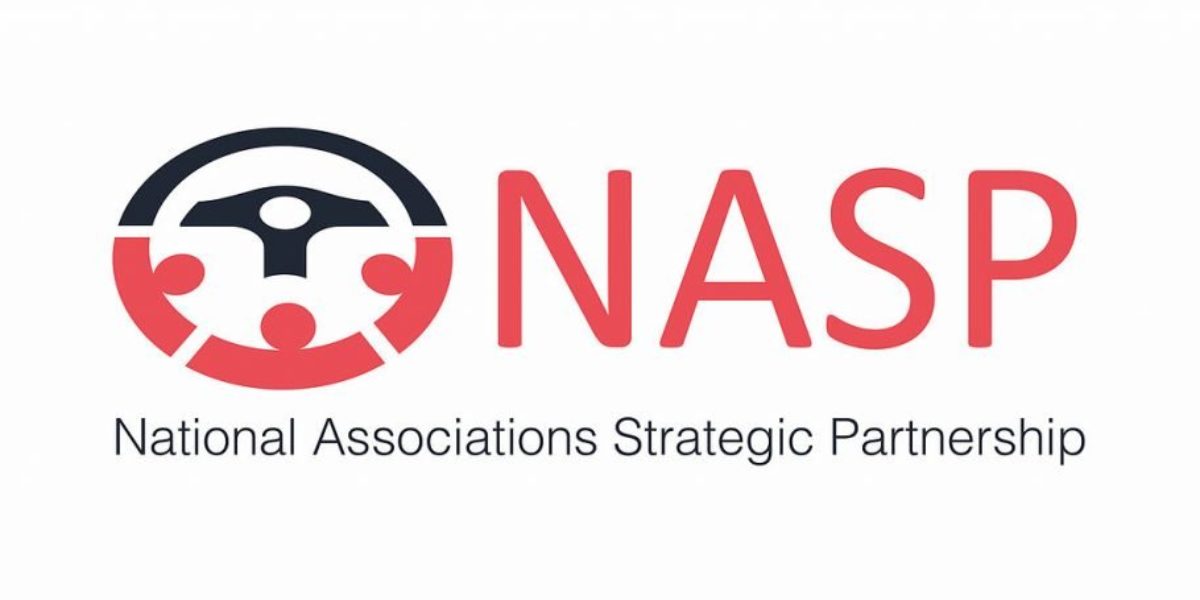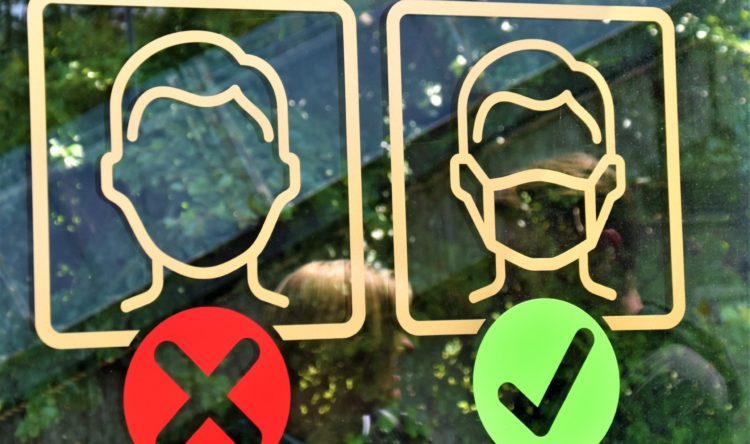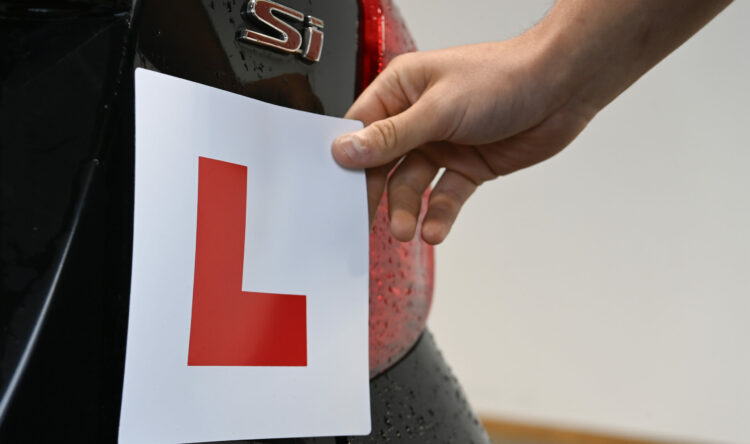NASP and DVSA’s latest meeting
A summary of the latest industry meeting
In attendance:
NASP: Representatives from the three national ADI associations that make up NASP, those being ADINJC,
DIA and MSA GB and the minute secretary.
DVSA:
Mark Magee, Head of Driver Policy
Laura Great Rex, Head of Enforcement Relationship Management
John Sheridan, Product Manager – Driver Training
Jacqui Turland, ADI Registrar
Nick Taylor, Deputy Registrar
Mark Winn, Chief Driving Examiner
Gordon Witherspoon, Deputy Chief Driving Examiner
Christopher Howes. Driver Trainer Policy Advisor
Amanda Lane, Vocational Policy Manager Technical Standards
Lianne Parkinson, Head of Driver Policy
Adam Poulson, Senior External Affairs Manager
At this meeting NASP met with the above representatives from key DVSA operational and policy areas to discuss issues within the industry. NASP is the only ADI stakeholder group to have such meetings and regular dialogue with DVSA and is considered by the regulator to be the key consultative stakeholder for the driver training industry. New members of staff at DVSA were introduced:
Amanda Lane has joined Mark Winn and Gordon Witherspoon’s teams. Lianne Parkinson joined DVSA from DVLA on November 1st and will replace Mark Magee as Head of Driver Policy upon his retirement in February.
Chris Howes is the new Driver Trainer Policy Advisor, replacing John Carradine who has returned to being an enforcement examiner in the South West.
Outstanding Items:
Further to a query raised at the previous meeting concerning number plates being used to collect information the Registrar said that they would not routinely be used to prioritise ADIs for Standards Checks, but would be used for ADIs who strategically use badge removal when they think a candidate is likely to fail. NASP asked if ADIs would know that their number plate was being recorded and the Registrar replied that they had always been recorded, it was nothing new and the information was not captured for that reason, but it was now being utilised in these circumstances. Furthermore this information had recently been used to an ADI’s benefit, the ADI had received their fault analysis report, which had under-reported the number of tests they had brought up. A search was carried out using number plate information to successfully find the missing tests. Examiners had been incorrectly using the ADI’s certificate number instead of their PRN. Examiners try not to touch licences. John Sheridan said that he had attended the ADINJC Expo with Loveday Ryder and was pleased to see over 700 attendees. Their session had been well received, especially information about TIP (Test Information Programme). He said he had received lots of positive feedback about the messages delivered, with some ADIs saying they won’t be removing their certificate in future. NASP asked about his statement on photocopied certificates as some ADIs want a second certificate if they have 2 cars and it was suggested it could be photocopied. The Registrar said this was incorrect, the certificate of registration is a Crown document and must be the original. However, they are looking at ways that ADIs can have a duplicate, but she said she couldn’t understand why a certificate would be left in another car if the ADIs was conducting a lesson immediately before test when it is a legal requirement to display the certificate while giving paid instruction. It was noted that some ADIs are putting their PRN on the dashboard to ensure the examiner can see it clearly.
Service Recovery
DVSA had been facing industrial action from examiners over the move to 8 tests a day. This has not materialised because the plans to move to an 8 test day have been taken off the table. DVSA are now reviewing recovery plans, although trying to recover 20,000 tests a month will be challenging. Many DVSA non examiner staff are still working from home, with some going into the office at times, some warrant card holders conducting tests at weekends over and above carrying out their current role Monday to Friday. The Registrars team has been in the office at Nottingham throughout the pandemic to print and issue certificates. There has been an increase in Covid cases amongst staff as well with the CEO now testing positive. This flexibility had increased productive time but it is good to see people face to face as well.
DVSA are in discussion with the government departments on the overall plan B scenario if the COVID situation worsens and were waiting for direction. Measures under consideration include reintroducing face coverings in certain circumstance. DVSA were keeping under review its SOP including not allowing ADIs to sit in on tests and early termination upon failure. NASP asked if there was a timeline for returning to full tests, there isn’t currently it is all interlinked and is still being considered. At the right time approval will probably have to come from Ministers to revert back, and they will need to be satisfied that plans fit with the wider Government direction. The aim is to recover tests as quickly and safely as possible. There is some progress on tests outside of daylight hours, this is being progressed and DVSA are preparing to launch a consultation that will include how eyesight tests are conducted. DVSA said there is support for being able to do it without good daylight, and it would be in a package for regulatory changes.
Updates on B+E
DVSA presented some slides that will be used for a wider audience and said feedback from NASP would be helpful. He stated that the Parliamentary process should take place on 15th November, after which a full cat B licence has full B+E entitlement. This will be physically added to a licence when any change is made. DVSA have been working with NTTA and NASP to develop a voluntary accredited training course to make sure drivers that tow have relevant skills and to support trainers.
The scheme will have core skills and additional sector specific skills to make sure those who tow do so safely and get the most from their chosen towing activity safely. There is a common desire to make sure the scheme is accessible to all. DVSA are currently developing information with follow up webinars for trainers wanting to know about the scheme, roadside enforcement and safety checks will continue. DVSA said they will make sure the new scheme is developed to make sure it is accessible for 3 groups – trainers, business users, and private people who tow for leisure. This would go to an all-party towing group of MPs.
NASP asked whether accreditation would be open to all? DVSA replied that they were currently determining whether there would be procurement at no cost, and were deciding the detail. Some providers are ADIs, some are HGV trainers, and the accrediting organisations will have to be fit for purpose and affordable. No timeline is currently set but DVSA said they appreciated the importance. Details of when the webinars are taking place were provided. The chief examiner said there are discussions taking place within DfT on how to move forward to procurement and writing the syllabus. He said there had been good work from the NTTA and contributions from the British Horse Society and updates will follow. NASP asked if the foundation was the work that NTTA and NASP had put together? The reply was that it was to a certain extent but it was necessary to make sure progress continued and a range of options were considered. He said NTTA had been significant contributors but they don’t have the detail behind who does the accrediting and how that happens.
Prioritisation of SCs and Engagement Calls:
DVSA stated that the engagement calls are going well, with over 600 delivered. A small number of ADIs have refused the call, some ADIs had not been contacted. After a couple of calls and messages being left, the examiners move on. There had been good take up and positive feedback from the industry. DVSA want ADIs to perform to the best of their ability, and a conversation with the person delivering the SC is helping that. NASP asked about any common concerns ADIs bring to the call. Some ADIs don’t know how the system works and find the call helpful, positive and reflective. NASP asked for figures on the percentage of people who have taken SCs following the calls, bearing in mind that some people would have been booked for a SC before the pandemic. DVSA explained that people pre-booked before lockdown were re-booked and the engagement calls are only been offered under the prioritisation system. It is a little too early to see how the next few months work out and to see the take up of the engagement call yet.
DVSA is currently meeting the demand for Part 2 and Part 3 tests, with demand remaining high. There are currently only a small number of book to holds on the system. DVSA said since the introduction of TIP (Test Information Programme) the overall pass rate has increased by 0.3%, however there hasn’t been any huge changes in data but the numbers of people with 4 parameters has shrunk slightly and is moving in the right direction, early indications are that the system is going well. NASP asked about the number of people viewing the information power point slides, as it seemed to be quite small. DVSA explained that there are 2 platforms and would endeavour to find out viewing numbers. The Registrars team has noted a slight increase in the number of complaints from pupils saying their ADI wouldn’t take them to test. DVSA fully support the ADI in these cases and do not record them as a complaint against an ADI, but it could be an indication that ADIs are being more careful about who they are taking to test. DVSA are aware that ADIs are forming groups to swap tests.
ORDIT:
The Registrar explained that her team had been getting together with the enforcement examiners to discuss ways to reintroduce the scheme. There are a number of ADIs whose ORDIT has lapsed, and those who have applied to join, they will all receive correspondence shortly to see if they want to go ahead, and payment will be taken, or refunded if they have paid but no longer wish to proceed. Assessments will be by role play only, due to not wanting to risk 4 in a car in the current Covid climate. In order to make ORDIT the best of the best, the first to be invited will be those with 0, 1 or 2 TIP parameters. Those on ORDIT with a grade B will be invited to take a standards check to gain the necessary Grade A. The examiners are ready to do inspections countrywide.
The trainer of the ORDIT candidate will be allowed to listen in to the feedback)by phone at the end of the assessment, as is also the case currently for Part 3 . The examiner will be in touch with the ADI to set up an engagement call and the ADI will need to provide the examiner with their training records as part of the call. Although the records will be discussed as a part of the engagement call, the ORDIT assessment will still be an hour.
Body Cameras:
NASP noted that they had seen that bodycams would be used for some DVSA staff and asked whether it would include examiners. The chief examiner said they are used widely by enforcement staff if there are known existing risks for staff, they can be equipped to wear them. If there is evidence of a previous history of aggression there are robust arrangements to protect staff for future tests, e.g. candidates will have to attend in a 4 door, dual controlled car, in a location with a test centre car park with easy access in and out. In extreme cases then additional steps of security staff with bodycams will be put in place. However examiners will not be wearing them routinely.
Consultation on Fees:
NASP enquired about this consultation and any outcome. DVSA said that responses are being analysed and they were waiting for legal advice. There is no formal proposal that fees should go up every year by the rate of inflation.
Provision for SEN Candidates:
NASP asked for any updates and said that there had been some issues, mainly with theory tests. They felt after the last SEN meeting there were promises made that haven’t been kept at some theory test centres. DVSA replied that Phil Coup is looking after the challenges arising in that area. John Sheridan said that he had been designing a learning pack for deaf candidates since 2018 and was now reaching its final stages, it has now gone to DDIA and BDA for input for approval. The aspiration is that the pack will be used by ADIs, and examiners on test with synergy between the two to improve the service for deaf candidates. TCMs had been updated on the process to ensure consistency and there will be presentations about SEN testing to ensure DEs have a better understanding of the restriction codes and are not over-restricting anyone attending for SEN testing. There is a full DVSA meeting with NASP and the Driving Instructors Disability Association in the following week as well.
Vocational Testing:
DVSA said agreement had been reached to changes to A2 of minimum test vehicle requirements, and a wider range of bikes, so bikes with a minimum of 245cc can now be used. For LGV manual and auto licences will be changed to make it simpler and fairer. The same rules to C1 and D1 now apply to C and D vehicles. The need for stage testing had been removed, there is no longer a need to take a test in a rigid vehicle before going on to take a towing test, so the route to larger vehicles has been streamlined. Manoeuvres can now be assessed by 3rd party assessors from the training industry.
Practical tests – future changes?:
DVSA said there had been an intention to trial reverse parking in public car parks, but this had been put on hold due to recovery and other priority work. DVSA will keep NASP informed and information will be sent out on when trials will take place and which test centres will be involved. One of the current test requirements is to carry out 2 normal stops, this is under consideration to be reduced to 1 to enable tests to flow better and to get out on to the higher risk roads, this would be across all tests. DVSA said this will not change the length of the test but it would allow more time on higher risk roads. A more meaningful stop would be carried out with a thorough assessment of ability.
NASP asked if there was any consideration given to safeguarding issues if tests are going out later in the day, some TCs are in isolated places, and if there is no access to waiting rooms it could be a consideration of safety. DVSA said locations would be considered on a case by case basis, this was something they hadn’t previously considered but would take away to consider.
Other Business:
DVSA said that in the next financial year fuel efficient driving may be marked in Part 2. This could include not using cruise control, not making block gear changes, not using all gears. There will be a need to give ADI trainers the opportunity to prepare PDIs. The Agency has to give evidence to government that the industry is contributing to reducing emissions.
NASP asked whether the ability to ring to swap tests has been withdrawn? DVSA had not heard this was the case, but would encourage people to do this online if possible. NASP asked how people should do this if they don’t use the Gateway facility? DVSA said it would be the customer services email but warned that they are very busy, DVSA agreed it would be good to make this transaction ability easier. They had not heard that the 25 facility will be removed.
The Registrars team said there had been some slight system changes, and that they are moving away from letters to emails. Renewal letters sent 6 months before registration lapses will now be by email, also correspondence regarding lapsed registrations. Reminders will now have a link in to click to get to the correct page to obtain a DBS disclosure. If there is no email address held for an ADI, they will receive a letter. Work has been done to check email addresses are valid, and to make sure data is accurate and up to date, the next stage will be to do first application theory test invitation letters. Emails come from the Registrars team’s PADI address and it’s hoped they won’t go to spam. NASP were encouraged to tell members to look out for emails, and to update their emails with the Registrar’s team ([email protected]), or log in and update addresses themselves at Update your approved driving instructor (ADI) registration – GOV.UK (www.gov.uk)
Date of Next Meeting:
This will be held in late February and most likely will be held online.
Lynne Barrie Current NASP Chair on behalf on NASP
NASP comprises the ADINJC, DIA and MSA GB.






